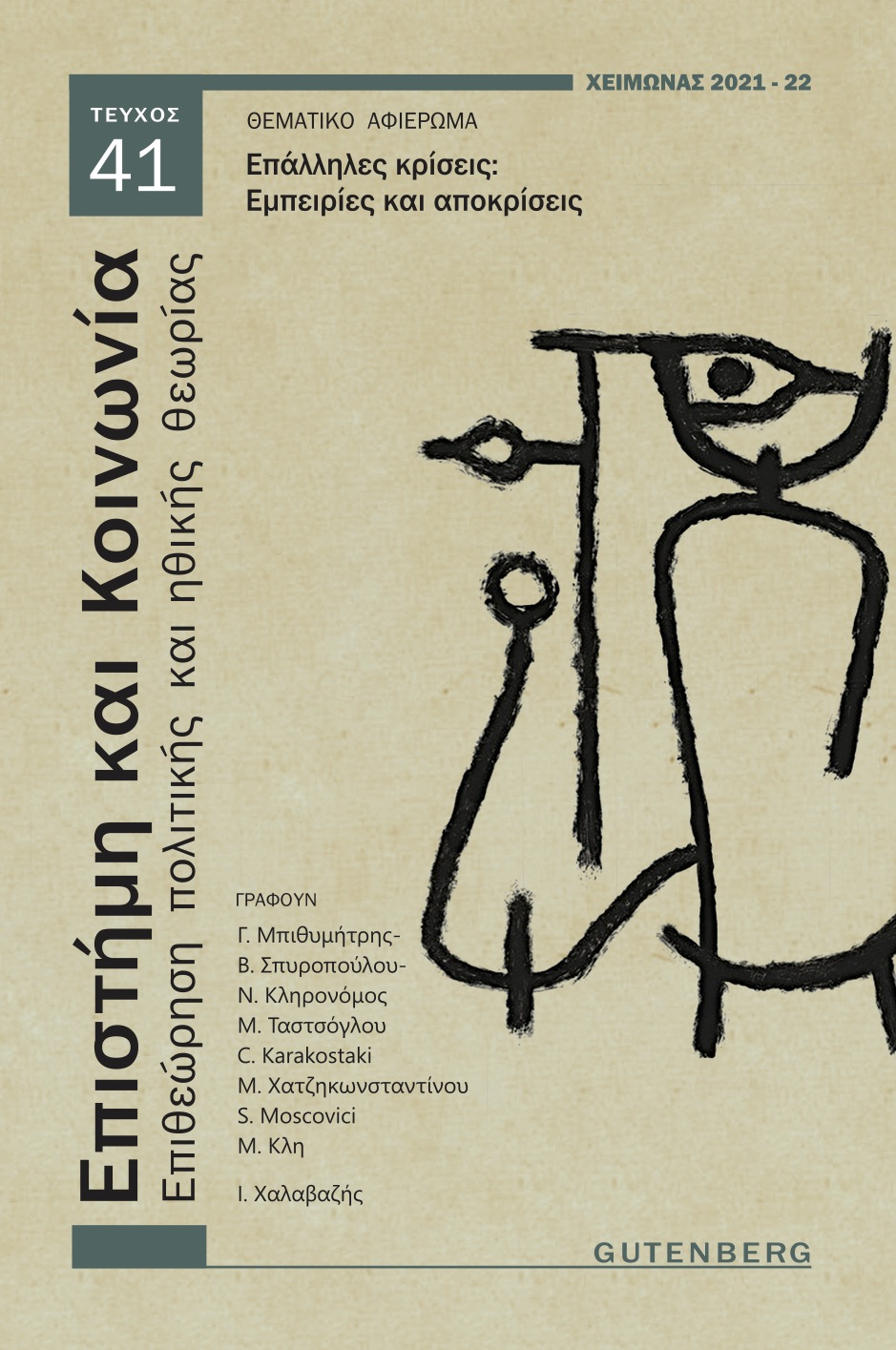Recording the first wave of the Covid-19 Pandemic in Greece: Expert knowledge, solidarity and effervescence

Abstract
This paper aims to document the first wave of the Covid-19 pandemic in Greece. It discusses events that shaped the Greek public sphere and contributed to the formation of the collectively lived social experience. It examines the role of epistemic authority in the decision-making process during an emergency, outlines common attitudes and beliefs about the virus and reviews important debates and controversies in the early stages of the pandemic. The description and analysis are based on empirical elements, such as the State’s daily broadcast, which also functioned as a ritual of collective effervescence, as well as important controversies that dominated in the public sphere. Our hypothesis is that citizens were able to respect drastic containment measures because they actually received informed knowledge about the pandemic. In that way, they were convinced beforehand that the strict guidelines were not the mere outcome of an authoritarian government, but primarily the result of evidence-based politics.
Article Details
- How to Cite
-
Καρακωστάκη Χ. (2022). Recording the first wave of the Covid-19 Pandemic in Greece: Expert knowledge, solidarity and effervescence. Science and Society: Journal of Political and Moral Theory, 41, 82–105. https://doi.org/10.12681/sas.27162
- Section
- Articles

This work is licensed under a Creative Commons Attribution-NonCommercial-ShareAlike 4.0 International License.
Authors who publish with this journal agree to the following terms:- Authors retain copyright and grant the journal right of first publication with the work simultaneously licensed under a Creative Commons Attribution-NonCommercial-ShareAlike License that allows others to share the work, not for commercial purposes, with an acknowledgement of the work's authorship and initial publication in this journal. If you remix, transform, or build upon the material, you must distribute your contributions under the same license as the original.
- Authors are able to enter into separate, additional contractual arrangements for the non-exclusive distribution of the journal's published version of the work (e.g., post it to an institutional repository or publish it in a book), with an acknowledgement of its initial publication in this journal.
- Authors are permitted and encouraged to post their work online (e.g., in institutional repositories or on their website) prior to and during the submission process, as it can lead to productive exchanges, as well as earlier and greater citation of published work (See The Effect of Open Access).


